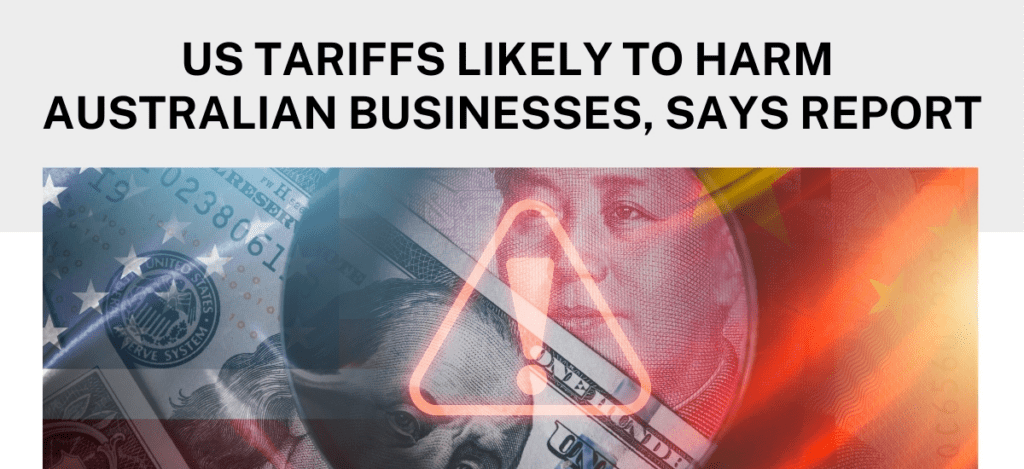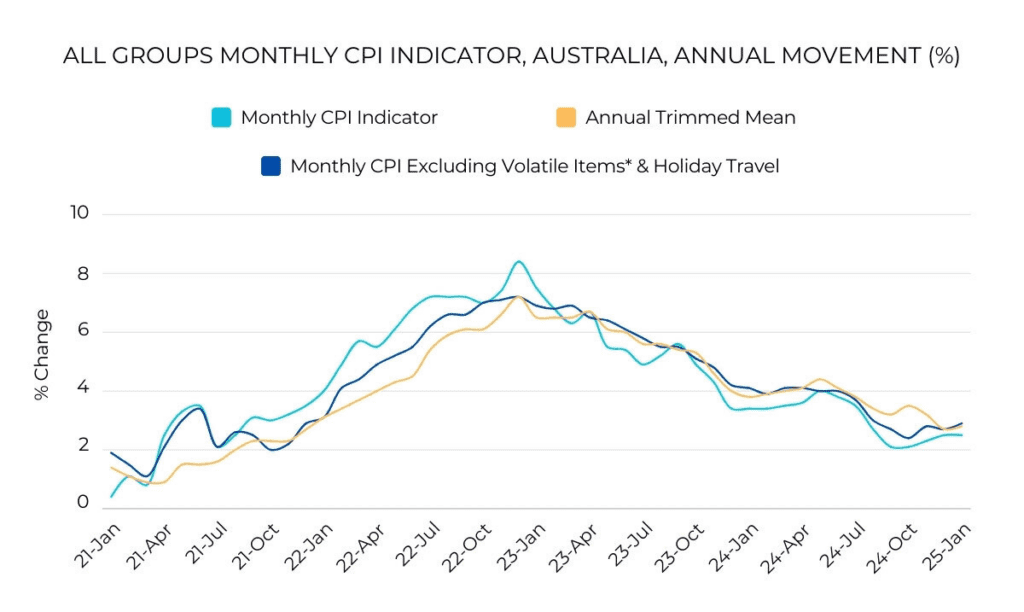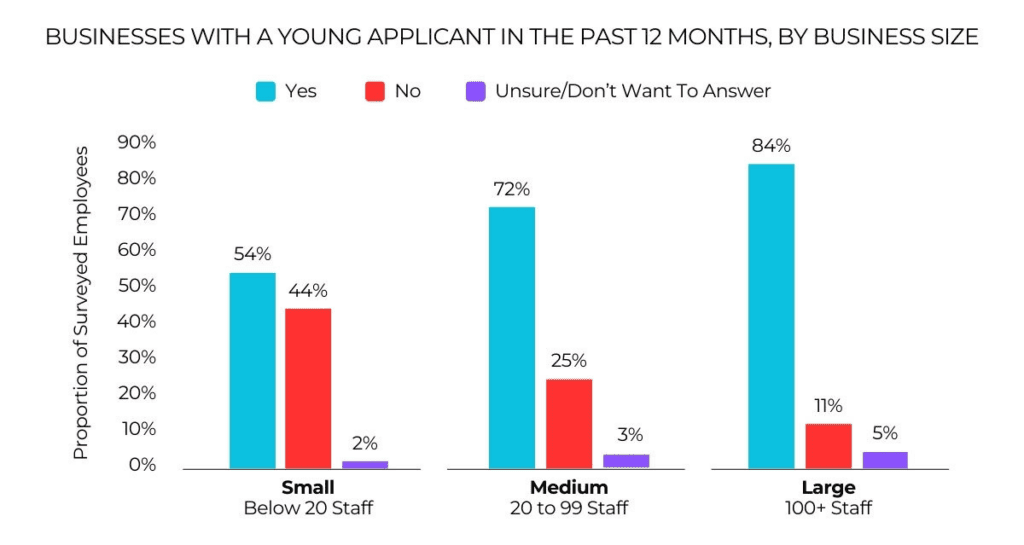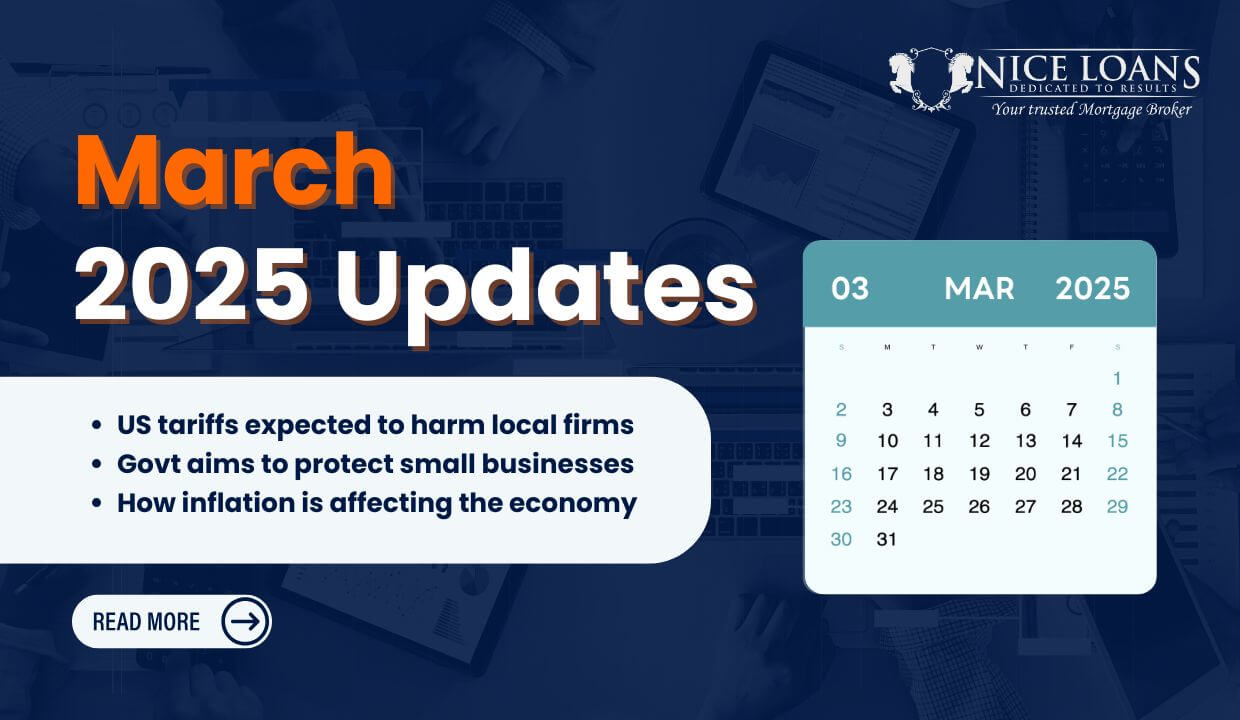While a lot of media coverage is now focusing on the upcoming federal election, there are some other important business and economics stories making news:
- US tariffs expected to harm local firms
- Govt aims to protect small businesses
- How inflation is affecting the economy
- Young workers struggling to find jobs.
Read more below.

The tariffs being imposed by the US government are likely to lead to higher costs, greater compliance challenges and more uncertainty for Australian businesses, according to a report by PwC.
PwC said the supply chain costs for Australian businesses – particularly in the manufacturing and retail sectors – with operations in the US may rise. “Many of these businesses depend on supply chains linked to nearby markets such as Canada and Mexico or are integrated with value chains that rely on Chinese goods for intermediate or finished products, resulting in a significant cost in procurement,” PwC said.
Furthermore, Australian businesses are likely to face a greater compliance burden, according to PwC, as they will need to prove the ‘true origin’ of their goods to reassure US regulators that those goods have not been initially shipped from other countries (such as China) in order to avoid higher tariffs.
PwC also forecast that the tariffs would have a significant indirect impact on local businesses, as many Australian companies are part of global supply chains that involve the US and China. “The new and proposed tariffs may potentially disrupt these supply chains, leading to increased costs and/or supply delays,” PwC said.
Reach out to discuss your finance needs
The federal government has promised to protect small businesses from unfair trading practices imposed on them by larger companies.

“Treasury will consult this year on the design of protections for businesses, including on whether a principles‑based prohibition should apply and whether specific unfair trading practices should be targeted to protect small businesses,” the government said.
Unfair practices may include bigger businesses:
- Using their superior bargaining power to pressure smaller suppliers into accepting unfavourable contract changes
- Discouraging smaller businesses from exercising their legal rights by suggesting possible commercial consequences
- Threatening to de‑list smaller suppliers in retaliation for seeking price increases to which they may have been contractually entitled
The small business ombudsman, Bruce Billson, said big businesses had been getting away with that kind of behaviour due to a gap in the law.
“Dominant and powerful businesses know that if this kind of dodgy conduct was written into ‘a take it or leave it’ contract they would likely be in breach of the unfair contract terms laws. But by not writing it down, and behaving or conducting themselves in the same manner, this harmful conduct is outside the reach of the current law unless it reaches the very high bar of egregious conduct,” he said.

The national inflation rate in January was a moderate 2.5%, but prices are changing at different rates in different parts of the economy, according to the Australian Bureau of Statistics.
On the high side, prices increased by 6.5% year-on-year for education, 6.4% for alcohol & tobacco and 5.3% for insurance & financial services.
On the low side, prices rose only 0.9% for recreation & culture and 0.5% for transport, while falling 0.6% for communications.
As a result, businesses are having very different inflationary experiences right now, depending on the inputs they buy and the products/services they sell.

Meanwhile, the most recent Statement on Monetary Policy, which was released by the Reserve Bank of Australia (RBA) in February, noted that underlying inflation is expected to remain within the Reserve Bank of Australia’s target range of 2-3% – even though the outlook for underlying inflation is now slightly higher than three months earlier.
“This reflects our assessment that the pick-up in GDP growth will flow through to tighter labour market conditions than we previously expected and will sustain some upward pressure on inflation. Inflation expectations are assumed to remain consistent with achieving the inflation target over the long term,” the RBA said.

Young Australians, aged 15-24 years, are struggling to find work due to a lack of skills, qualifications and experience, with the youth unemployment rate about five percentage points higher than the national rate.
Jobs & Skills Australia (JSA) said “the path to stable employment has become increasingly complex”. To better understand employer experiences and improve youth employment outcomes, JSA conducted targeted research of employers.

JSA found that a good attitude was the most important quality a young jobseeker could have – 60% of the businesses that had hired young workers said they had done so because of applicants’ attitude. The next-most-common reasons were relevant experience (19%) and good communication skills (18%).
The industries that attracted the most young job applicants were accommodation & food services (75% of businesses reported having young applicants), health care & social assistance (70%) and retail trade (68%).
The most common recruitment methods used by employers were internet job boards (37%), word of mouth (30%) and responding to direct approaches from jobseekers (19%).
I hope you and your business had a successful Q3. With the end of the financial year approaching, this may be a good time to contact me about investing in new assets or refinancing any existing loans.








